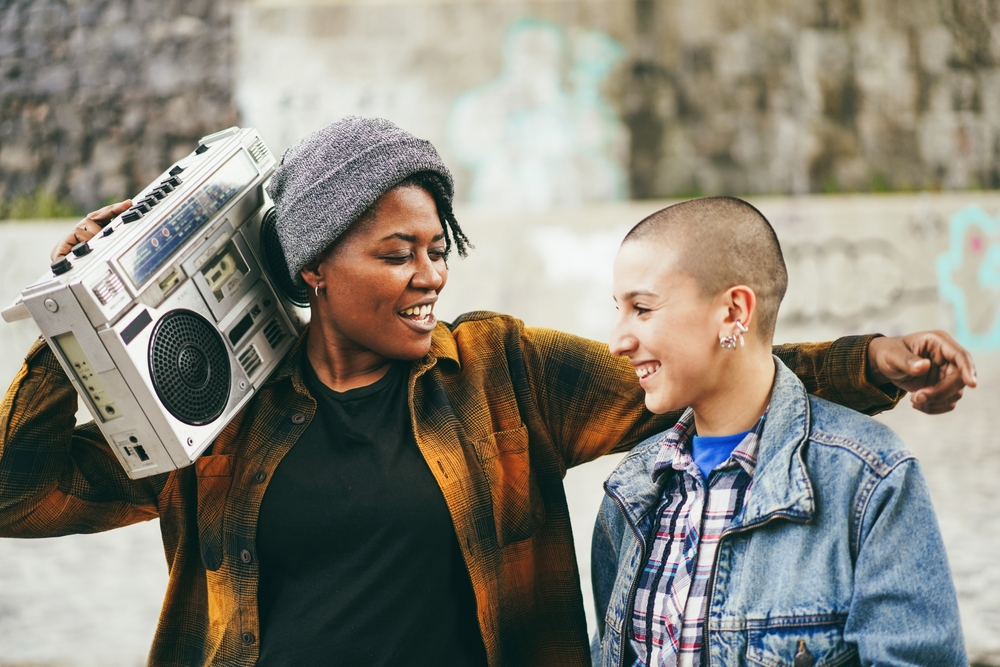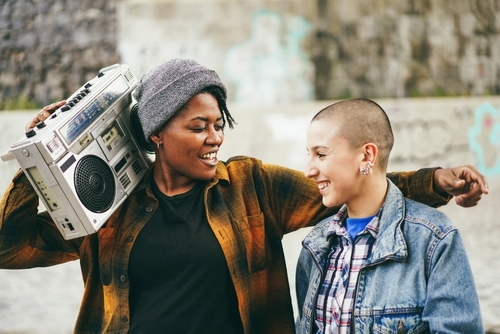Hip-Hop and Community Building: The Role of Music in Uniting People
Hip-hop has transcended its origins in the Bronx to become a global cultural phenomenon. While its beats and rhythms have influenced countless artists and genres, its most profound impact lies in its ability to unite people from diverse backgrounds. The role of hip-hop in uniting diverse communities is multifaceted, encompassing everything from social activism to the creation of safe spaces where individuals can express themselves freely. This blog delves into how hip-hop events that foster community building are pivotal in bringing people together, transcending racial, socioeconomic, and cultural barriers.
The Birth of Hip-Hop: A Community-Driven Movement
Hip-hop emerged in the 1970s in the Bronx, New York City, as a response to the economic hardship and social neglect faced by the predominantly African American and Latino communities. It was born out of block parties where DJs played percussive breaks from popular songs, emcees hyped the crowd, and dancers showcased their skills. These gatherings were more than just entertainment; they were a form of resistance and a way to reclaim public spaces. From its inception, hip-hop has been about community building, providing a voice to the voiceless and creating a sense of belonging among marginalized groups.
Hip-Hop as a Tool for Social Activism
One of the most significant roles of hip-hop in uniting diverse communities is its use as a platform for social activism. Artists like Public Enemy, Tupac Shakur, and Kendrick Lamar have used their music to address issues such as police brutality, systemic racism, and economic inequality. Through powerful lyrics and compelling storytelling, these artists raise awareness and inspire action, bringing together people who might not otherwise engage with these issues.
Hip-hop events that foster community building often include elements of activism, such as fundraisers for social causes, voter registration drives, and discussions on pressing social issues. These events create a space where individuals from different backgrounds can come together, learn from each other, and work towards common goals. By addressing shared concerns and advocating for change, hip-hop helps to bridge divides and foster a sense of unity.
Breaking Down Cultural Barriers
Hip-hop’s global reach has made it a powerful tool for breaking down cultural barriers. As the genre spread from the Bronx to cities around the world, it adapted to local contexts and incorporated diverse cultural influences. Today, hip-hop is a global language spoken in myriad dialects, each reflecting the unique experiences and traditions of its practitioners.
In places like South Korea, France, and Brazil, hip-hop has become a means for young people to express their identities and connect with others. International hip-hop events that foster community building, such as festivals and competitions, bring together artists and fans from different countries, creating a melting pot of cultures. These gatherings celebrate both the commonalities and differences among participants, promoting mutual respect and understanding.
Creating Safe Spaces for Expression
Hip-hop has always been about giving a voice to the marginalized and creating spaces where individuals can express themselves freely. This is particularly important in communities where young people may feel isolated or misunderstood. Hip-hop events that foster community building provide a platform for these individuals to share their stories, talents, and perspectives.
Open mic nights, rap battles, and graffiti art showcases are just a few examples of how hip-hop creates inclusive environments where everyone is welcome. These events encourage creativity, self-expression, and collaboration, helping to build strong, supportive communities. By providing a space where individuals can be themselves without fear of judgment, hip-hop fosters a sense of belonging and solidarity.
Hip-Hop and Education
Education is another area where hip-hop plays a crucial role in uniting diverse communities. Hip-hop education programs, often referred to as “hip-hop ed,” use the elements of hip-hop culture to engage students and teach various subjects. These programs are particularly effective in reaching students who may be disengaged from traditional educational methods.
Hip-hop ed programs incorporate rap lyrics to teach poetry and literary devices, use DJing to explain mathematical concepts, and employ breakdancing to promote physical fitness and teamwork. By integrating hip-hop into the curriculum, educators can create a more inclusive and relevant learning experience for students from diverse backgrounds.
Moreover, hip-hop ed programs often address social issues, encouraging students to think critically about their communities and the world around them. This fosters a sense of social responsibility and empowers young people to become active participants in their communities.
Economic Empowerment through Hip-Hop
The economic impact of hip-hop is another significant aspect of its role in community building. The hip-hop industry, encompassing music production, fashion, media, and more, provides numerous opportunities for economic empowerment. For many young people, pursuing a career in hip-hop can be a path out of poverty and a means to support their families and communities.
Hip-hop events that foster community building often include entrepreneurial components, such as workshops on starting a music career, managing finances, and launching a business. These events provide valuable resources and networking opportunities, helping individuals to build sustainable careers and contribute to their local economies.
Furthermore, successful hip-hop artists and entrepreneurs often give back to their communities through philanthropy and mentorship. By investing in education, youth programs, and community development initiatives, they help to create a cycle of empowerment and upliftment.
The Unifying Power of Hip-Hop
From its roots in the Bronx to its global influence today, hip-hop has always been about more than just music. It is a powerful tool for community building, capable of uniting people from diverse backgrounds and fostering a sense of belonging and solidarity. Through social activism, cultural exchange, education, and economic empowerment, hip-hop plays a crucial role in breaking down barriers and bringing people together.
Hip-hop events that foster community building are a testament to the genre’s unifying power. They provide platforms for expression, opportunities for learning and growth, and spaces for individuals to come together and work towards common goals. As hip-hop continues to evolve, its role in uniting diverse communities will undoubtedly remain a cornerstone of its enduring legacy.
Need Hip Hop Apparel in Fishers, IN?
Here at Venolos Apparel, we are passionate about the power of hip-hop to unite communities and transcend barriers. Our clothing line celebrates the dynamic culture and spirit of hip-hop, and we believe in its profound ability to foster connections and inspire change. We invite you to connect with us to explore our unique apparel and discover how we can support your events and initiatives that bring people together. Whether you are organizing a community gathering, an educational program, or a hip-hop festival, we are here to collaborate and help you make a lasting impact. Reach out to us today, and let’s build a stronger, more connected community through the vibrant world of hip-hop!



